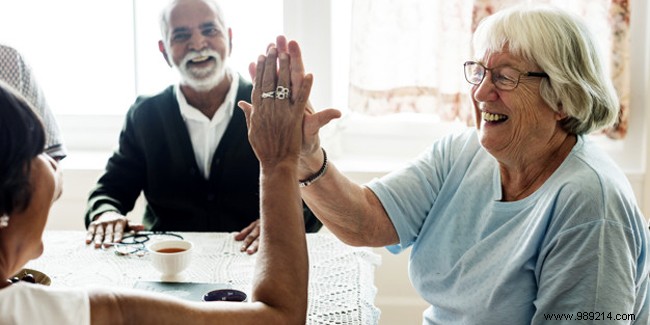
On the occasion of the last International Day of Older Persons, the association Les Petits Frères des Pauvres recalled that in France 900,000 people over the age of 60 suffer from isolation. Among them, 300,000 are in a situation of extreme isolation, that is to say that they hardly ever or very rarely meet people, family, friends, neighbours, etc. However, there are many solutions to allow these seniors to come out of their isolation. Our 5 ideas to remedy this scourge that weighs heavily on some elderly people.
Feeling isolated as an older person can be due to several factors. To the geographical remoteness of his relatives first, but also to his loss of autonomy which prevents him from doing what one wants alone, in complete independence, or even to the precariousness which deprives him of the financial means necessary to have leisure activities in particular.
It is important for isolated elderly people, even with limited financial means, not to be left alone at home. Simple walks, when his level of autonomy allows it, can be enough to break the isolation a little. These outings can indeed be an opportunity to meet neighbors, shopkeepers, etc. in the street.
For isolated elderly people who cannot go out on their own due to their loss of autonomy, there are solutions for being accompanied. In many municipalities, there are indeed associations of volunteers whose mission is to visit isolated elderly people and accompany them on their outings. A good way for these seniors also to be able to have a person with whom to exchange, talk, and clear their minds.
Elderly people who suffer from isolation and can no longer bear to be alone most of their time at home can decide to join a specialized establishment for the reception of seniors.
The best known is obviously the accommodation establishment for dependent elderly people (Ehpad) which is aimed at seniors who are experiencing a certain loss of autonomy. In these establishments, common activities are organized for the residents which allow them to meet people, and therefore no longer feel completely isolated.
Another solution when a non-dependent isolated elderly person no longer wishes to stay at home to break with loneliness is to join a foster family. The senior is thus accommodated in the home of a family, with the assurance of always being surrounded. Accommodation with a host family is also a good way to take part in family life again, sometimes with other elderly residents, an asset especially when your own family is far away or no longer exists.
In terms of residence, intergenerational housing is also a good solution to allow the elderly to no longer suffer from isolation.
This type of residence designates the possibility of mixing several generations in the same building. It can also be for seniors to welcome young people into their accommodation, often students, who bring joy to the house, but who are also there to render small services and keep them company.
Without having to leave their home, an elderly person also has at their disposal means of breaking out of their isolation, for example by taking an interest in new communication technologies (Internet, social networks, etc.).
As we know, and not only for isolated elderly people, these networks make it possible to maintain strong links, albeit virtual, with family, friends, or even groups of Internet users with the same interests.
The Internet is also a door wide open to the world where it is possible to have fun, learn and discover more and more. A great way to break isolation.
Why not adopt a pet when you are an elderly person who suffers from isolation? For this, the senior must be relatively autonomous because taking care of a dog, a cat, etc., requires being able to carry out certain tasks easily (walking, food, cleaning, etc.). But surrounding yourself with a pet is always synonymous with exchanges and affection and helps to break isolation.
Some associations even allow elderly people who do not have all the abilities to take care of a pet on a daily basis, to welcome one for part of the day for example and to benefit from its warm and comforting presence, without having to take care of the obligatory tasks when adopting a pet.